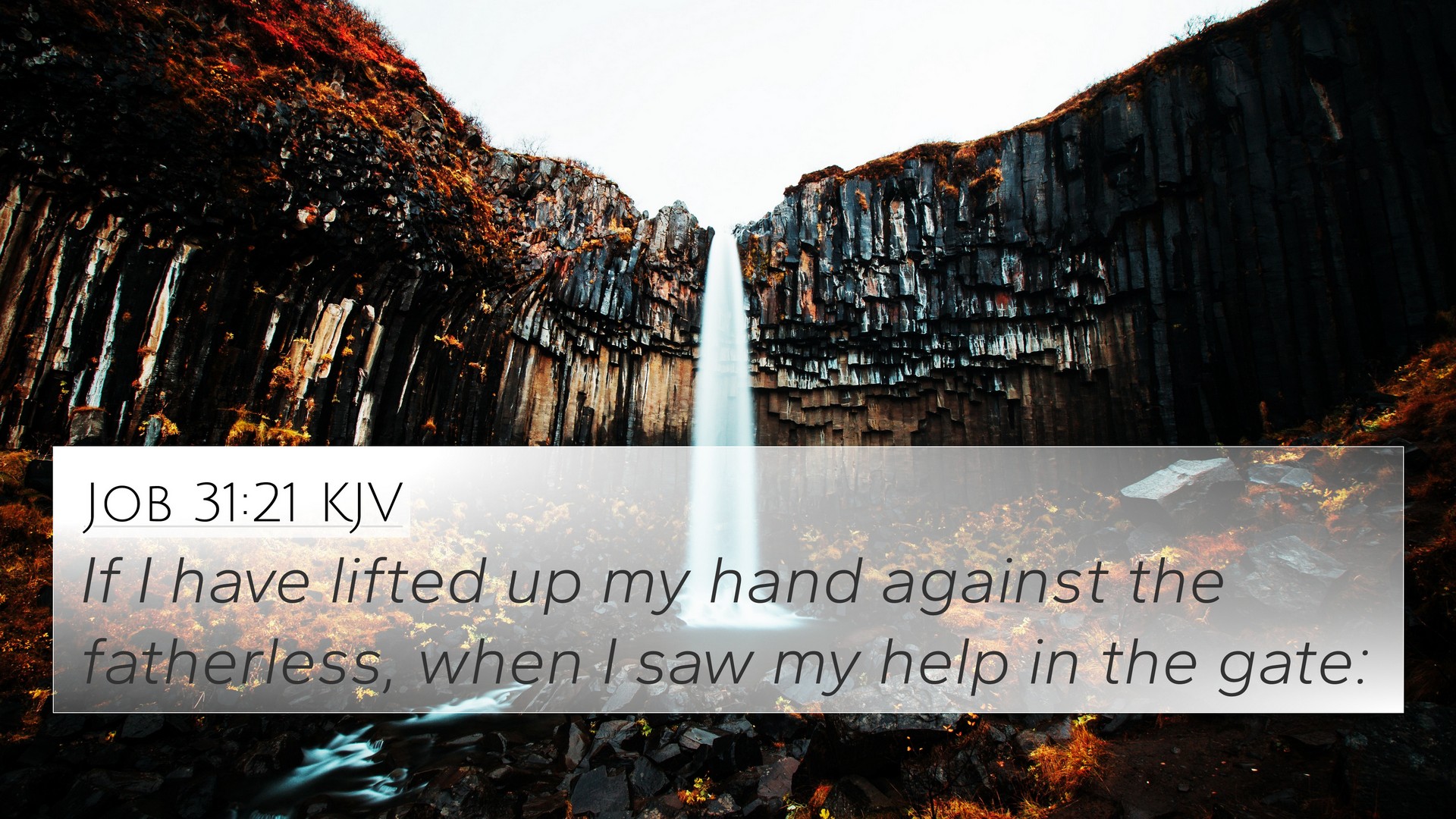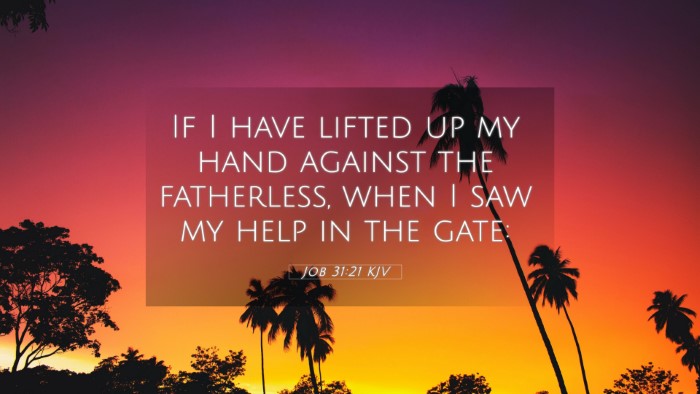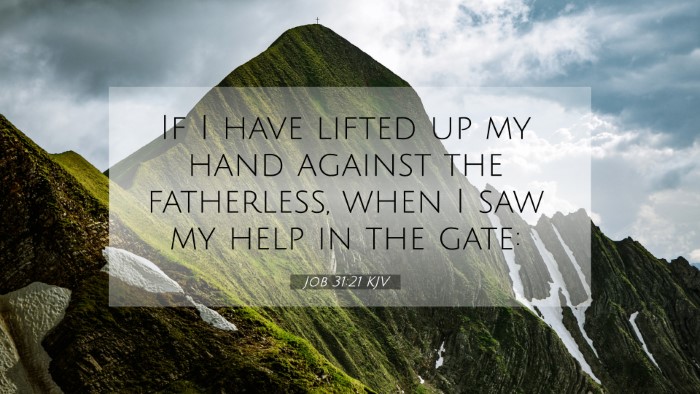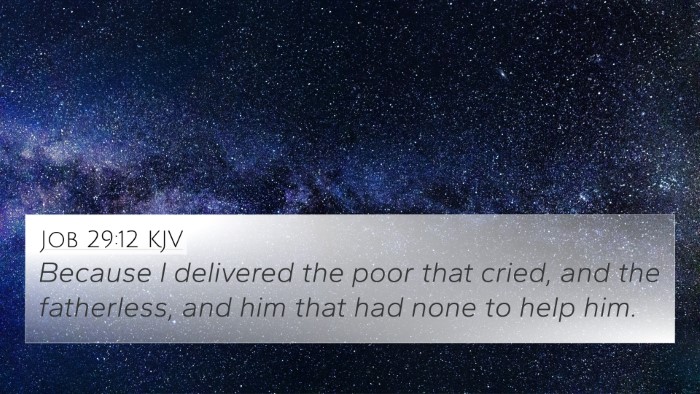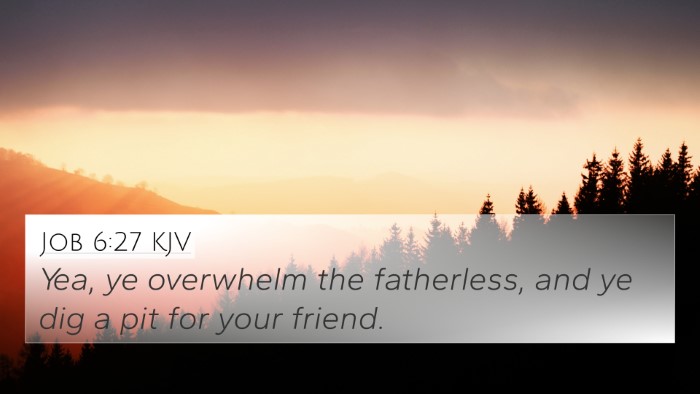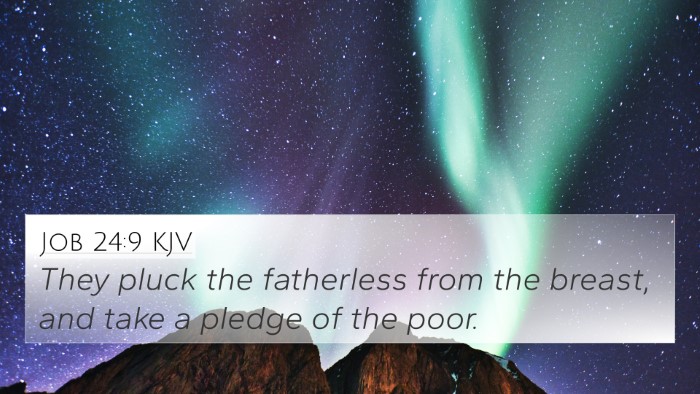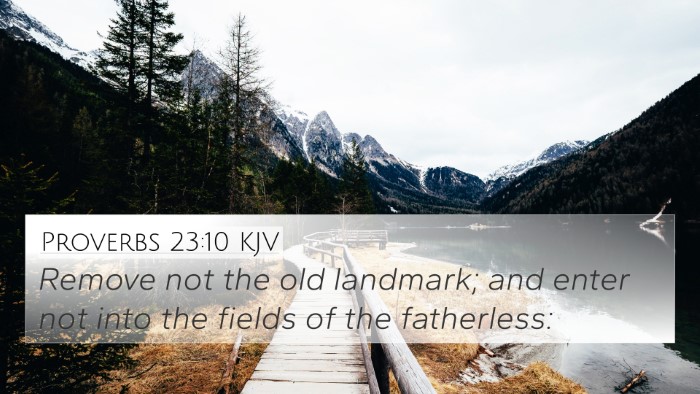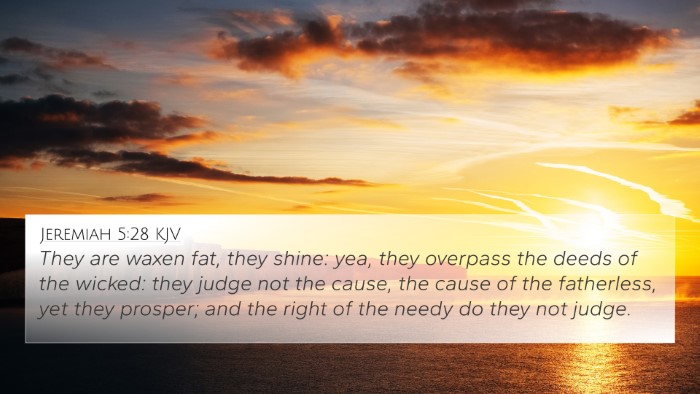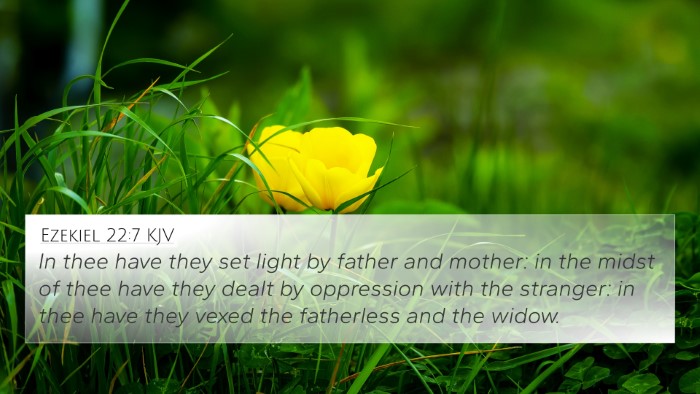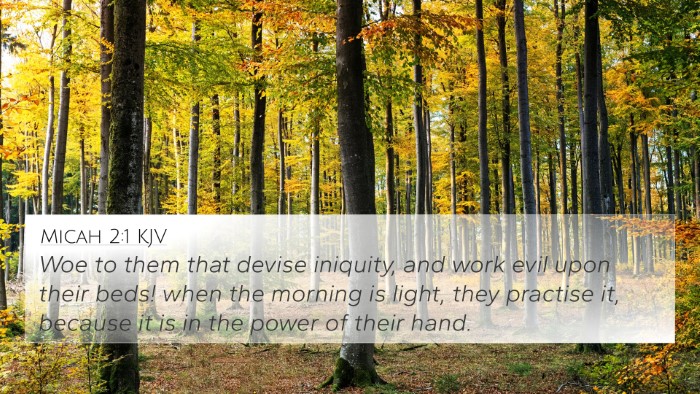Understanding Job 31:21
Job 31:21 presents a profound insight into the nature of justice and the moral responsibilities of individuals. In this verse, Job emphasizes his integrity, stating:
"If I have lifted up my hand against the fatherless, when I saw my help in the gate..."
Meaning and Interpretation
This verse reflects Job's commitment to social justice and his disdain for manipulating power against the vulnerable, particularly orphans. The phrase "lifted up my hand" symbolizes an act of oppression or unjust action against the innocent.
Commentary Insights
- Matthew Henry: Henry explains how Job is asserting he has never abused his position to harm those who are defenseless, demonstrating his righteousness.
- Albert Barnes: Barnes highlights the importance of aiding the weak and how Job sees his duty to protect the fatherless as a reflection of his faithfulness to God's commandments.
- Adam Clarke: Clarke elaborates on the social responsibilities laid upon individuals, stressing that neglecting the vulnerable can lead to one's judgment and condemnation.
Thematic Connections
Job 31:21 resonates with several themes found throughout Scripture, emphasizing the need for justice, compassion, and integrity:
- Justice for the Vulnerable: This theme connects to Exodus 22:22, which commands not to afflict any widow or fatherless child.
- The Nature of Righteousness: Proverbs 14:31 underscores the righteous treatment of the poor as a demonstration of a person's character.
- Responsibility of the Powerful: Ezekiel 22:29 highlights the unjust practices of the powerful against the needy.
Cross References
Here are notable biblical cross-references to Job 31:21 that enrich the understanding of its message:
- Exodus 22:22-24 - A call to protect orphans and widows.
- Psalm 82:3 - The charge to defend the weak and fatherless.
- Proverbs 31:8-9 - Advocating for those who cannot speak for themselves.
- Isaiah 1:17 - Instruction to seek justice and defend the oppressed.
- Lamentations 3:34-36 - God’s commitment to justice for all, including the oppressed.
- James 1:27 - True religion defined as caring for orphans and widows.
- Matthew 25:40 - Serving the least of these is akin to serving Christ.
Cross-Referencing Biblical Texts
Utilizing tools for cross-referencing allows believers to delve deeper into the connections and themes within the Bible. Here’s how Job 31:21 connects with other scriptures:
- Bible Concordances: Look for “fatherless” and “justice” to find related verses.
- Bible Cross-Reference Guides: These tools can highlight shared themes across both Testaments.
- Comparative Bible Verse Analysis: Examine how different books address the same themes of justice.
Inter-Biblical Dialogue
The dialogue between the Old and New Testaments consistently reinforces the need to care for the vulnerable:
- Identifying Connections: Compare Job’s plea with the teachings of Jesus on caring for the needy.
- Detailed Study: Look into the teachings of the prophets and how they echo in the message of the New Testament regarding social justice.
Conclusion
Job 31:21 serves as a powerful reminder of the ethical responsibilities that accompany one's status and power. This verse not only instructs individuals in the importance of morality but also encourages an understanding of the interconnections among themes in the Bible related to justice, integrity, and protection of the vulnerable. By examining cross-references, believers can grasp a more holistic view of God's expectations and the importance of compassion in their lives.
